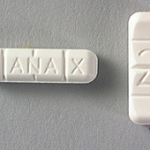Does Addiction Last a Lifetime?

Decades after quitting heroin, deceased television celebrity and writer, Anthony Bourdain, was condemned by some people for using alcohol and marijuana for recreational purposes. Was this condemnation really valid? Can someone who was once addicted to drugs in their early years safely have a glass of wine after dinner?
Well, the answer isn’t a straightforward one. It all depends on the model of recovery that you subscribe to. For instance, if you are a traditionalist and you believe addiction is life-long and that people who were once addicts can never get out of it, your answer is absolutely not. This would be akin to playing with fire.
During the 3 months I was in rehab, it was forcefully ingrained in my mind that addictions are lifelong, and that if one ever becomes an addict to say alcohol, then abstinence from all other potentially addictive substances is the only hope of rescue.
At the time, this made perfect sense. After all, a person who has the same predispositions to addiction including: genetic makeup, anxiety or depression and even childhood trauma- could possibly become addicted to another substance after they have struggled to put their addiction to an end.
Medically, the greatest concern is that different addictions have a common pathway in the dopamine systems in our brains (the reward high feeling), so it’s only logical to say that the body may try to find a new pathway to fulfill these hungry sensations after the first one is cut shot.
However, through my own recovery I learnt how important it is to apply logic when it comes to addiction. Just because something makes sense, and we have been thinking about it in a certain way for a long time, doesn’t mean that it’s necessarily true for everyone.
In rehab, I actually heard so many things that did not have any scientific backing. For instance, they kept telling me daily that a drug is a drug. This sort of mentality doesn’t give room for facts – take for instance, the powerful opiate fentanyl and buprenorphene (Suboxone). While Opiate fentanyl leads to thousands of death every year, buprenorphene is an effective treatment for opioid addiction.
This far, I have come to know that a total abstinence model is an outdated holdover that only applied more than 100 years ago. Our knowledge of addiction has greatly increased since then. The concept of addiction that was used when AA (Alcoholics Anonymous) was founded might not hold true now. With that said, addiction groups help so many people recover because they encourage one to not only change but maintain the change.
Recovery Improves Tolerance to New Addictions
It may seem as if no one truly knows the answer about whether people truly recover from addiction and if they substitute their addictions. According to a research carried out by National Institute of Drug Abuse, they believe that a previous addiction is a high risk factor for future addiction to other drugs.
Look at this scenario for instance: many people who quit smoking end up gaining weight. Is this a case of substituting their addiction? I like to casually put it out there that as someone who was once an opiate addict, the only addiction that one would substitute with is nicotine addiction. This is because most of us in an attempt to recover from the trauma of being an addict who was sent to rehab, our first consolation is cigarettes.
People Change Overtime
In my opinion, I do not believe that people substitute their addictions. From what I learnt from my own recovery path, those who are addicted tend to have a high affinity for a certain drug and not all drugs. This is possibly from the combination of their genetic and neurochemistry makeup.
I had a strong addiction to opiates, but I never had any difficulty with any other drug. And this was also the case for thousands of other addicts who I interacted with. Most people continue to improve their coping skills as they age, so a struggling 18-year old addict does not have the same coping mechanism as a 50-year old who has struggled with so many challenges and seemed to overcome them or is on their way to overcoming those challenges.
Weaknesses and susceptibility becomes less and less overtime. People aren’t rigid, which is why no one should give up when dealing with addiction regardless of how bad the situation may be at the moment.






